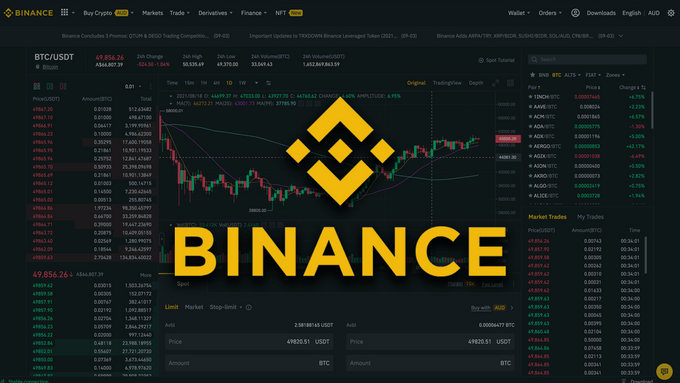Binance Faces Class Action Lawsuit as US Supreme Court Denies Appeal
The US Supreme Court has dealt a big blow to Binance, one of the world’s largest crypto exchanges, as it denied their appeal in a proposed class action lawsuit. The lawsuit claims Binance sold unregistered securities illegally and in violation of US securities laws. The case is adding to the legal woes of the platform.
Updated January 14, 2025

Background and Implications of the Case
The case against Binance has significant implications for the cryptocurrency industry, as it sets a precedent for the application of US securities laws to crypto exchanges operating outside of the country. The Supreme Court’s decision to deny Binance’s petition for review confirms that US securities laws can be applied to foreign companies that provide services to American clients, even if they do not have a physical presence in the US.
This ruling has far-reaching consequences for the crypto industry, as it highlights the need for exchanges to comply with US securities laws, even if they operate outside of the country. The case also underscores the importance of proper registration and disclosure for crypto exchanges, as well as the need for robust anti-money laundering controls.
The implications of this case extend beyond Binance, as it sets a precedent for other crypto exchanges operating in the US market. The ruling may lead to increased regulatory scrutiny of crypto exchanges, and potentially even more lawsuits against companies that fail to comply with US securities laws.
Supreme Court’s Ruling
On January 13, 2025, the US Supreme Court rejects appeal of Binance’s lower court ruling. The lower court ruled that US securities laws apply to Binance, despite being a non-US entity with no physical office in the US. The court said token purchases were made on US servers so Binance is subject to these laws. This is a big deal for the implications of securities laws in the global financial markets.
Binance argued that the global interconnectedness of financial markets should exempt them from such regulations, that modern technology allows for seamless securities transactions across borders. But the Supreme Court’s denial puts to rest that US securities laws apply even to crypto exchanges operating internationally.
The Class Action Lawsuit
The class action lawsuit was filed in April 2020 by investor Chase Williams against Binance. Binance is accused of being an unregistered securities exchange and selling unregistered securities, with US securities laws applied to their operations. The plaintiffs say the company didn’t comply with US securities laws for securities transactions in the US. This case is a big warning to investors when unregistered tokens are traded on platforms that don’t have regulatory oversight.
This is not just a lawsuit for Binance but a warning to other crypto exchanges on securities laws. The plaintiffs say Binance’s actions led to the illegal sale of unregistered tokens and investors lost a lot of value.
Binance’s Legal Woes Continue
The Supreme Court’s decision is just one of Binance’s many legal problems. The crypto exchange and its CEO Changpeng Zhao have been involved in many legal battles including:
SEC Lawsuit: In May 2023, the US Securities and Exchange Commission (SEC) filed a case against Binance for selling unregistered securities and being an unregistered securities exchange while serving US citizens illegally.
Money Laundering: In August 2024, Binance was sued for laundering stolen cryptocurrency.
FTX Class Action: Binance and Zhao are being sued by the FTX bankruptcy estate for $1.8 billion for a fraudulent share deal in 2021.
Canadian Securities Lawsuit: In April 2024, a class-action lawsuit was filed in Canada against Binance for violating securities laws after they left the country.
These lawsuits are adding more pressure to Binance and its CEO.
Supreme Court Denies Appeal: What it means for the Industry
The Supreme Court's denial of Binance’s appeal sets a precedent for US securities laws to apply to foreign crypto exchanges. It shows that the US judiciary will hold platforms accountable for securities transactions involving US investors even if the exchange is not physically in the US. This ruling means securities laws apply universally when US investors buy tokens.
More Legal Background
Binance’s legal troubles escalated in November 2023 when they reached a $4.3 billion settlement with the US Department of Justice for violating money laundering and terror financing laws. In April 2024, Zhao was sentenced to 4 months in prison for enabling illegal activities and not implementing anti-money laundering controls properly. These events are piling up on Binance and putting their global operations under more scrutiny.
Trading Unregistered Tokens Risks
The class-action lawsuit shows the risks of trading unregistered tokens. Such activities can lead to huge financial losses for investors and crypto exchanges to severe legal consequences. The case emphasizes the need for regulatory compliance to reduce these risks and protect investors.
Next Steps for Binance and the Cryptocurrency Industry
The Supreme Court’s decision to deny Binance’s petition for review means that the class action lawsuit against the company can proceed. Binance will likely face significant legal challenges in the coming months, as it defends itself against allegations of operating an unregistered securities exchange and selling unregistered securities.
In the short term, Binance may need to take steps to comply with US securities laws, including registering with the Securities and Exchange Commission (SEC) and implementing robust anti-money laundering controls. The company may also need to disclose more information about its operations and financial dealings to US regulators.
In the long term, the cryptocurrency industry as a whole may need to adapt to the new regulatory landscape. Crypto exchanges may need to re-evaluate their business models and ensure that they are complying with US securities laws, even if they operate outside of the country. The industry may also need to develop new standards and best practices for registration, disclosure, and anti-money laundering controls.
The Supreme Court’s decision is a significant development in the ongoing legal battle between Binance and US regulatory authorities. As the case proceeds, it will be important to monitor the implications for the crypto industry as a whole, and to watch for any further developments in the application of US securities laws to crypto exchanges.
Conclusion
The Supreme Court’s decision against Binance is a turning point for the crypto industry. It shows the importance of securities laws in digital assets trading and a warning to other crypto exchanges to comply. As Binance is dealing with their legal woes and the global financial markets are figuring out the new regulations, this case is a reminder of the consequences of not complying.









